Will Pakistan's Gwadar port resolve China's Malacca dilemma?
While Pakistan's prized port at Gwadar in Balochistan province is supposed to open up an energy corridor from Central Asia and the Gulf across Pakistan to western China, security is the actual key to the Beijing's grand energy security plan, which includes developing Gwadar port as an alternative to the Strait of Malacca - a narrow waterway between Indonesia and Malaysia.
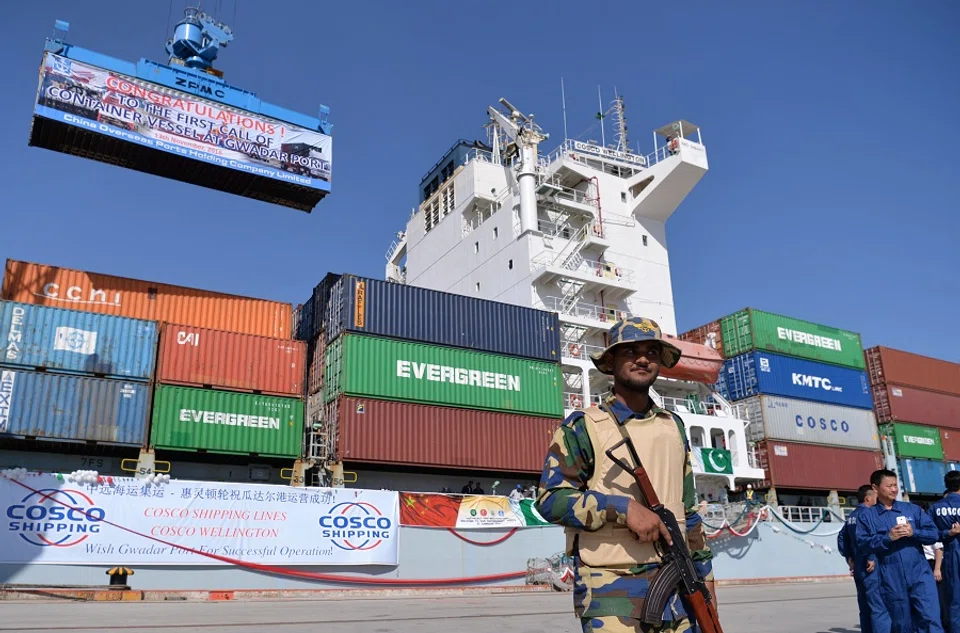
China is currently the world's top oil importer, with the Middle East accounting for 60% of its oil imports. In total, 80% of China's oil imports pass through the Strait of Malacca.
A blockade at the Strait of Malacca would mean cutting off China's energy lifeline. The fear of this happening due to conflict or any other reasons means that China has faced a "Malacca dilemma" - a term first coined by then President Hu Jintao in 2003 - for decades.
Meanwhile, the armed forces of China and India have been enmeshed in their most recent standoff at the Himalayan border since May 2020. As such, China still perceives an interruption threat to its energy flows from the Indian naval forces backed by the US Navy with greater control over the sea-lanes. Taking all this into account, China is desperate to have a land-based oil supply not subject to US naval superiority.
Can the Gwadar port be an alternative to the Strait of Malacca?
The US$62 billion China-Pakistan Economic Corridor (CPEC), a flagship project of China's Belt and Road Initiative (BRI), is supposed to link western China with the Gwadar port in Pakistan through a network of highways, railways and gas pipelines. China is the builder and operator of the Gwadar port, which lies at a distance of just 624 nautical kilometres to the east of the Strait of Hormuz - a narrow strait between the Gulf of Oman and the Persian Gulf.
Gwadar port is in its much-delayed second phase of development. It is planned that the depth of the port will eventually be increased to 16 metres to facilitate the docking of bigger ships. The depth will also be further increased to 20 metres in the future, making Gwadar the deepest port in the region.
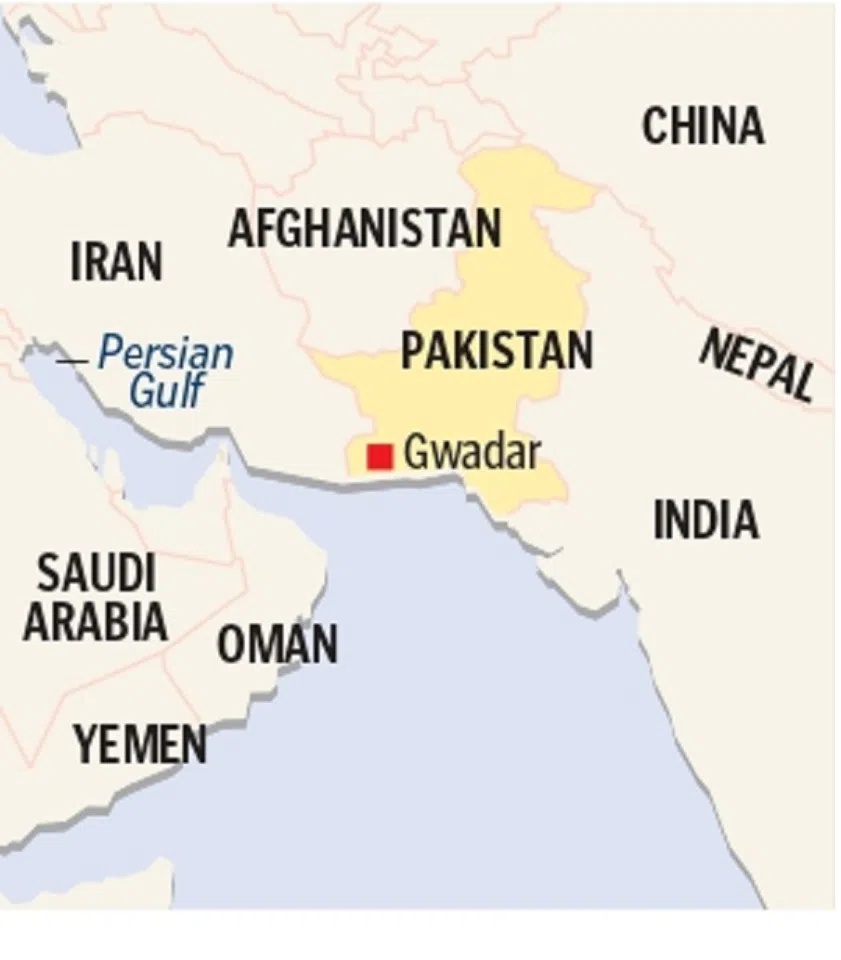
Presently, maintenance dredging of the navigational channel of Gwadar port is being carried out at a cost of US$57 million by a Chinese company - China Harbour Engineering Company Ltd (CHEC) -- under an agreement with Gwadar Port Authority (GPA) signed in February.
GPA chairman Passand Khan Buledi told this researcher that dredging work will increase the depth of the existing berths which had fallen as a result of sedimentation: "Dredging is going on, and it will be completed by March/April 2024. The dredging work or desilting will restore the port's 14.5-metre natural operational depth."
Lack of capacity and hostage to security issues
At present, Gwadar port doesn't have the capacity to handle large crude vessels.
"I do not think they will be constructing more berths soon unless political uncertainties and security issues are resolved, which does not seem possible for China or Pakistan in near future." - Jan Muhammad Baloch, a political analyst from Balochistan
China's oil transportation dream from Gwadar port will not come true until and unless the port is enabled to handle very large crude carriers of at least 250,000 deadweight tonnage (DWT), which forms a crucial part of the international oil movement.
"Even after more than 20 years, we see no oil terminals, no oil refinery and no oil storage facilities there. They didn't even build dual highways or railroads for crude transportation to China. So, if all these things are missing, how can they get bigger oil tankers to Gwadar port and how will they transport the crude?" said Jan Muhammad Baloch, a political analyst from Balochistan, to this researcher.
He further said, "The available statements from the Gwadar Master Plan show that they had a plan to build more than 100 berths. However, there are only four berths, one is a Ro-Ro berth [for roll-on/roll-off ships], and the other three are conventional berths.
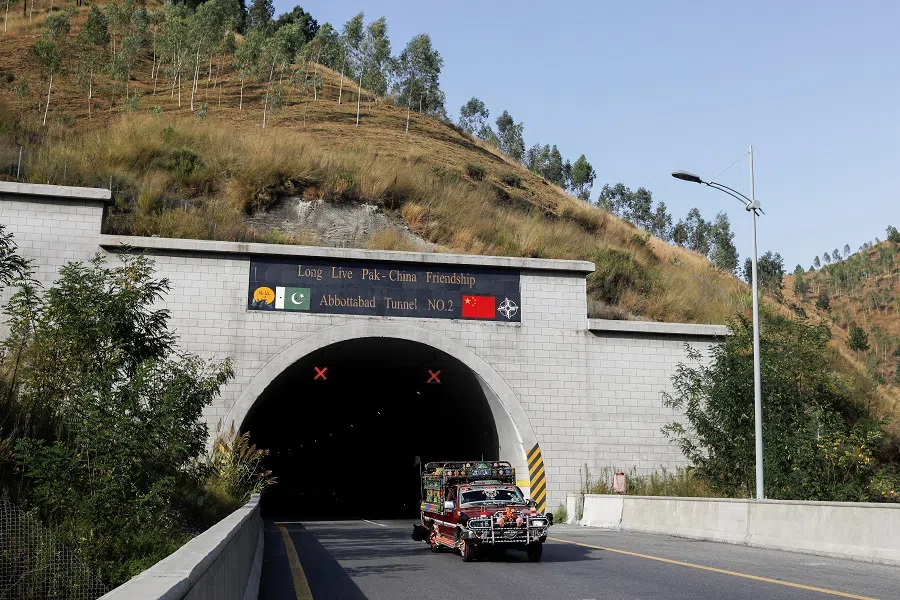
"I do not think they will be constructing more berths soon unless political uncertainties and security issues are resolved, which does not seem possible for China or Pakistan in near future," he added.
Based on rough estimates, Gwadar port needs a depth of at least 18 metres to be able to handle large crude vessels. Unfortunately, not even talking about going to its envisaged 20-metre depth, the port authorities have not been able to maintain the port's 14.5 metres natural operational depth in the past 20 years.
The dream of making Gwadar a petrochemical hub and using it for China's oil imports from the Middle East hardly seems likely to come true in the next decade.
Today, Baloch separatists and the outlawed Tehreek-e-Taliban Pakistan (TTP) are targeting the security forces as well as Chinese nationals and Chinese interests in the south Asian country, particularly Balochistan. On 13 August, for instance, an attack on a military convoy carrying Chinese engineers and workers from Gwadar airport to Gwadar port was carried out by Baloch separatists in Gwadar. The outlawed Balochistan Liberation Army (BLA) claimed the attack in which two BLA attackers were killed by the security forces. No Chinese citizen was injured or killed in the attack.
Fate of Gwadar-Xinjiang oil pipeline project
Some estimates say that fuel transportation to China through the CPEC would take just seven days as opposed to the existing route that takes almost 40 days.
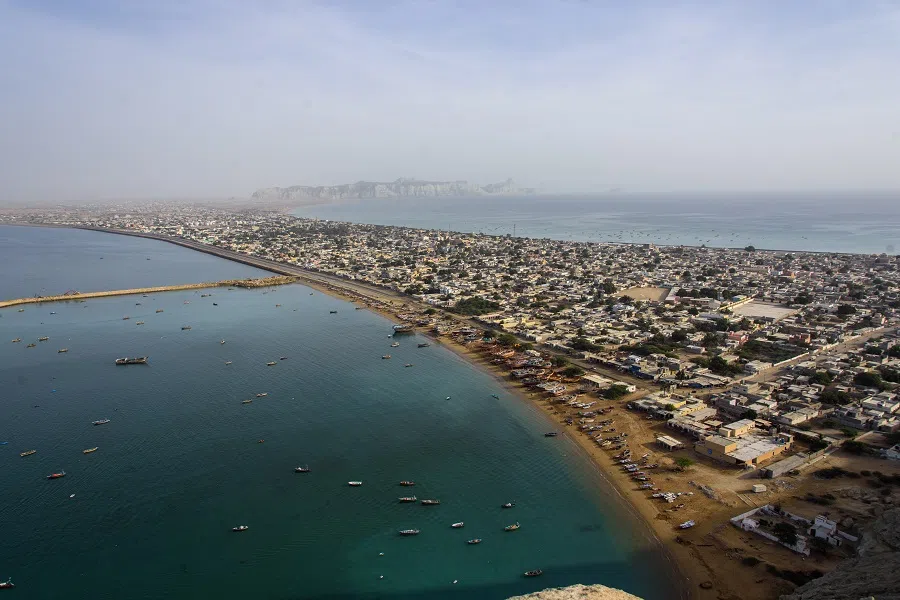
Under CPEC, an oil pipeline from Gwadar to Xinjiang via Karakoram Highway and Khunjerab Pass had been in the works. It was Pakistan's former President late Pervez Musharraf, who first floated the idea of building gas and oil pipelines between Pakistan and China in April 2008. He suggested the pipeline from Pakistan's south to the Khunjerab Pass, linking the two countries, would be raised till it crossed the Pass at 15,000 feet, thereafter more than half of the length would be in descent. The pipeline would go in tandem with Karakoram highway. The route over the Himalayas would certainly be an expensive venture and the landmark of engineering.
...China's grand energy security plan to resolve its Malacca dilemma, which includes developing Gwadar port as an alternative to Strait of Malacca, greatly depends on political stability and foolproof security of the projects under CPEC in Pakistan.
The Gwadar-Xinjiang pipeline was supposed to provide China with the shortest possible route to the Middle East, replacing the dangerous maritime route through the South China Sea, East China Sea and the Yellow Sea. Though Chinese engineers had completed a feasibility study for the construction of a railroad and an oil pipeline to link Kashi in Xinjiang and Gwadar in Balochistan about a decade ago, the pipeline project is not seeing any progress on ground yet.
Besides logistical hurdles and increased financial costs involved in construction of a trans-Himalayan oil pipeline, security of this pipeline traversing the volatile regions in Pakistan is the key issue and the main reason why the project has so far been in cold storage.
The GPA chairman refused to talk about this pipeline project when he was asked about the progress.
Security is the actual key
No doubt, Gwadar by virtue of its geostrategic location is the viable solution to blockade on both chokepoints - the Strait of Hormuz and the Strait of Malacca. In theory, the closing off of either strait on its own or both simultaneously due to conflict will not affect oil imports to China through Gwadar. What is direly needed however, is an oil-handling berth, which is still missing at the port. Not only that, China's grand energy security plan to resolve its Malacca dilemma, which includes developing Gwadar port as an alternative to Strait of Malacca, greatly depends on political stability and foolproof security of the projects under CPEC in Pakistan.
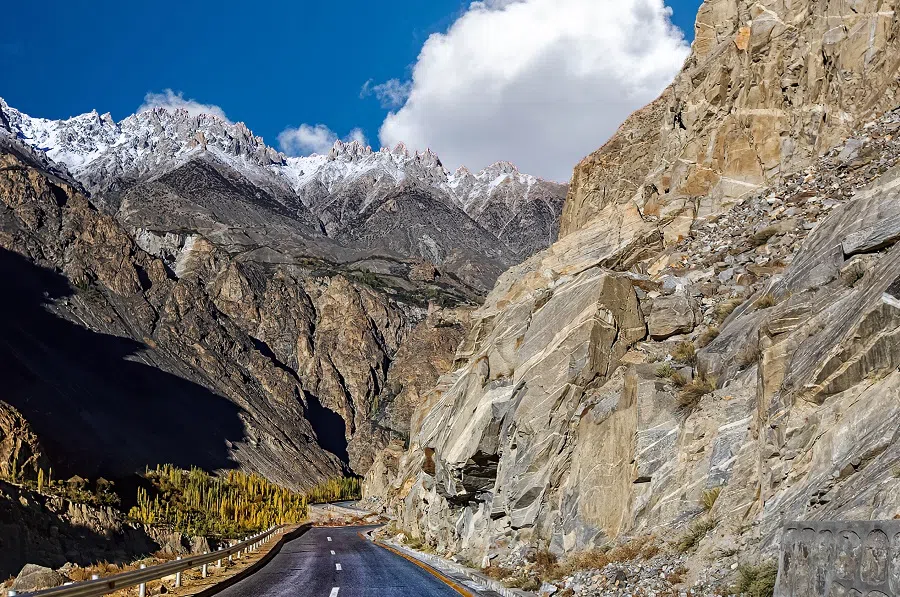
"Security is the biggest issue," Tariq Baloch, editor of a Quetta-based English-language daily, The Balochistan Express, told this researcher. "Without addressing the security issue in overall Pakistan, which is under attack by militant groups, overland oil supplies from Gwadar to Western China is almost impossible." In the latest attack on security forces by Baloch separatists on 3 November, 14 soldiers of Pakistan Army lost their lives after their vehicles were ambushed by militants in Gwadar. The surge in terrorist attacks on Pakistan security forces and Chinese interests demands an effective security plan for protection of CPEC projects. At the same time, a political reconciliation process needs to be initiated by Islamabad with rebel Baloch groups.





![[Big read] When the Arctic opens, what happens to Singapore?](https://cassette.sphdigital.com.sg/image/thinkchina/da65edebca34645c711c55e83e9877109b3c53847ebb1305573974651df1d13a)